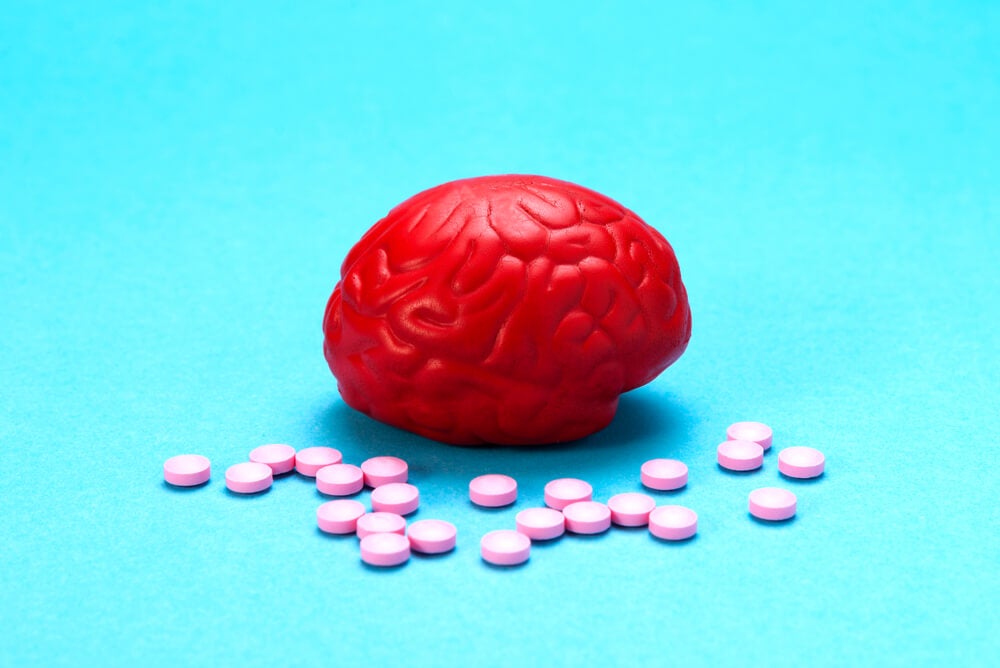Deprax is a second generation antidepressant drug, its active substance is trazodone, and is used to treat chronic depression, insomnia and anxiety disorders, so while the benefit of this psychiatric drug is probably more or less rapid in its action, you cannot ignore the side effects that, as always, need to be taken into account.
Trazodone (trade name Deprax) has been with us for almost 60 years, was discovered and developed commercially in Italy in 1961, trying to find another therapeutic alternative, another drug called second generation that acts as selective serotonin reuptake inhibitors (SSRS). The result was this capsule, usually pink, so it was prescribed not so long ago.
- Deprax is a chemical group drug of phenylpiperazines.
- It acts as an antagonist and serotonin reuptake inhibitor (AIRS).
- With anxiolytic and hypnotic effects.
The manufacturer generally notes the main benefit in the notice: its effectiveness during the first week of administration. In addition, there is another fact that many patients were looking for at the same time, namely the use of an antidepressant drug that does not promote on the other hand, in addition to these so-called virtues, it is worth mentioning one that made Deprax one of the best-selling drugs in the 70s and 80s: it was one of the most economical.
However, one thing that became apparent in those early years was one of its main side effects: orthostatic hypotension (pressure drop when the person gets up). Gradually, trazodone has been found much more effective and safe in small doses, this adjustment has allowed us to continue to evolve in the treatment of various conditions to this day.
What neurologists and psychiatrists tell us is that the brain is much more complicated than we think, to this day we still do not know how antidepressants actually work and it is not always possible to predict what type of medication is best for each patient. Deprax, while it has been on our market for almost six decades, continues to have advocates and critics, some warn of its often unpredictable side effects, but there is no shortage of studies that reveal its high effectiveness in different disorders.
Now let’s see under what clinical conditions Deprax is usually prescribed.
It should also be noted that Deprax has shown, according to several studies, great utility in patients with post-traumatic stress disorder. All people who have had insomnia, nightmares and high anxiety associated with trauma have shown, on average, a good improvement with this drug.
As we have noted, Deprax is a second generation drug, i. e. it acts as an antagonist and serotonin reuptake inhibitor; However, what sets this drug apart from Prozac, for example, is that it is a chemical compound of phenylperazine. This results in some pros and cons. The advantage is that it is a 5-HT receptor inhibitor. This means that its action to treat anxiety and depression is high.
It now also blocks alpha-adrenergic receptors and Serotonin transporting proteins. All of these elements can cause a wide range of side effects, albeit of minor importance.
There are patients who take Deprax without noticing any side effects, others, on the other hand, tend to have a problem, a change that can usually be due to other conditions (certain diseases, interaction with other medications or foods, etc. ) So, one thing to consider is that this drug is not recommended in people with liver, heart or kidney problems.
In addition, it cannot be taken in combination with other sedatives, heart medications, antibiotics, anticoagulants or even natural medicines, such as St. John’s wort, we must follow all the instructions of doctors to the letter.
Now let’s see what the main side effects are
We now have newer, safer drugs with fewer side effects; However, options like Deprax remain common in psychiatric practice for one reason: when we have patients with concomitant depressions, i. e. accompanied by anxiety, insomnia, nightmares and psychological disorders, this medication is one of the most effective.

